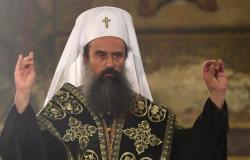European companies that remained doing business in Russia after the outbreak of the war in Ukraine and that were hit by Moscow’s retaliatory actions, as happened to Ariston, will be able to ask their country for compensation. This is what the new measures adopted by the European Union provide as part of the fourteenth package of sanctions against Russia.
The “Ariston-saving” measure
The request to include the “business-saving” rule would have been strongly supported by the Italian government. According to a diplomatic source, “Italy has worked carefully to ensure the adoption of compensation measures to protect European companies”. There are two remedies envisaged: “on the one hand, European companies can take action before the courts of the Member States to request compensation for damages suffered following lawsuits initiated in third countries by Russian entities or entities controlled by Russians for contracts or transactions whose execution was hit by European sanctions,” explains the source. The other remedy provides that “European companies can take action before the courts of the Member States to request compensation for damages caused by Russian entities who have benefited from the Russian provisions of assignment under temporary administration”.
This is the case of Ariston: last April, the Italian household appliances company lost control of its Russian subsidiary, which produces boilers and water heaters for an annual turnover of around 100 million euros. Following a decree from the Moscow government, the branch passed into the hands of the Russian state company Gazprom. A real expropriation, even if the Russian authorities only speak of a temporary measure.
Thanks to the measures approved by the EU, Ariston will now be able to appeal to the Italian justice system to request compensation for the damages suffered by the Italian State. Compensation will not be automatic, but will require approval from a court. This eventuality could concern dozens of other companies from our country that have continued to operate in Russia in these two-odd years of conflict. According to the database maintained by Kse Institute, only 4 of the 130 Italian companies present in Russia have completely stopped their activities. As many as 85 have maintained their business as before the conflict. And now they risk suffering retaliatory actions from the Kremlin.
The other measures
The new package of sanctions launched on Thursday morning by the ambassadors of the 27 EU states includes, among other things, a ban on the transshipment of liquefied natural gas (LNG) in the European Union. The measure is designed to hamper the logistics of Russian gas exports from the Arctic, which require the use of icebreaking LNG tankers during the winter months. These ships deliver the LNG they transport to European ports – Zeebrugge in Belgium or Montoir-de-Bretagne in France, for example – which is then transported by conventional tankers to the Asian market, in particular China, explains the AFP news agency . The sanctions also aim to limit Russia’s use of “ghost” cargo ships to circumvent EU sanctions on Russian oil exports.
The package also includes measures to target the SPFS, the system for financial transactions created by Russia after its exclusion from the Swift international interbank financial system. Furthermore, the obligation for European companies to trace the goods they market abroad will be strengthened, to prevent them from ending up in Russia through intermediaries from third countries. This is a measure aimed at preventing the arrival in Moscow of technologies for civilian use that can also be used in the military field, such as microprocessors. Negotiations between EU countries had stalled on this point, in particular due to Germany’s opposition.





